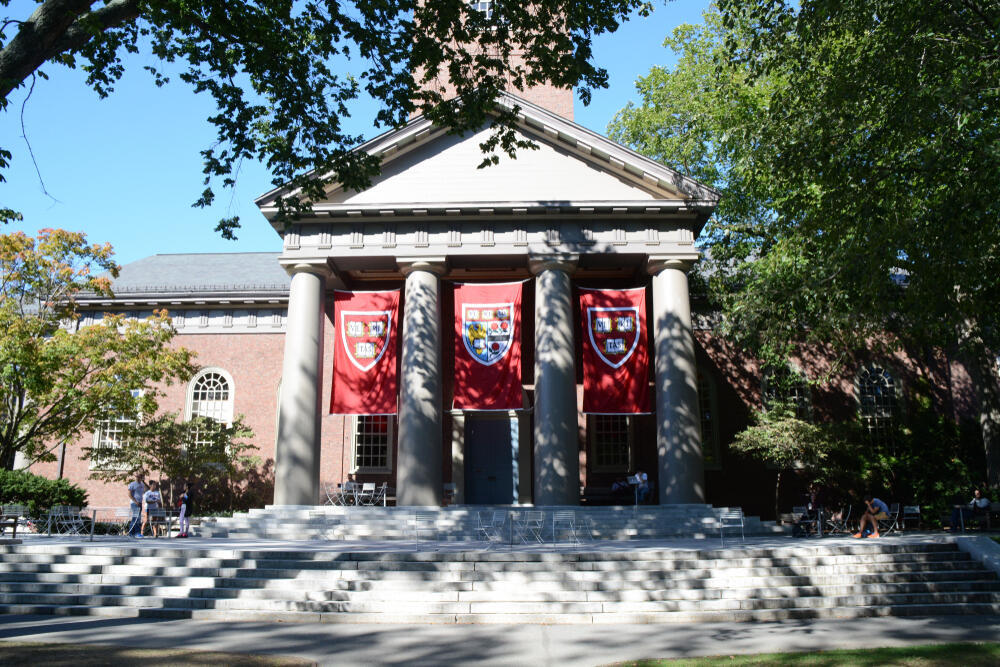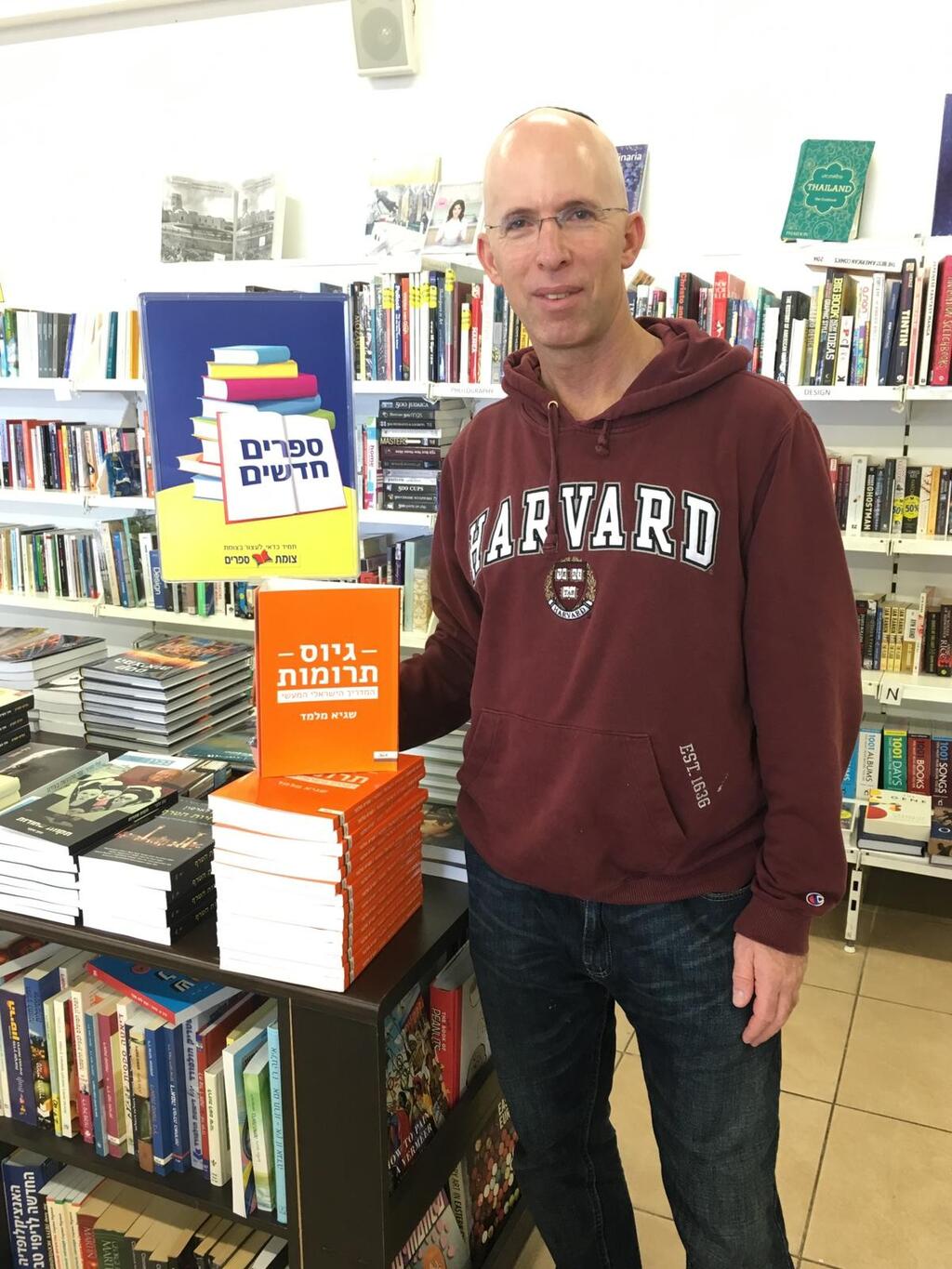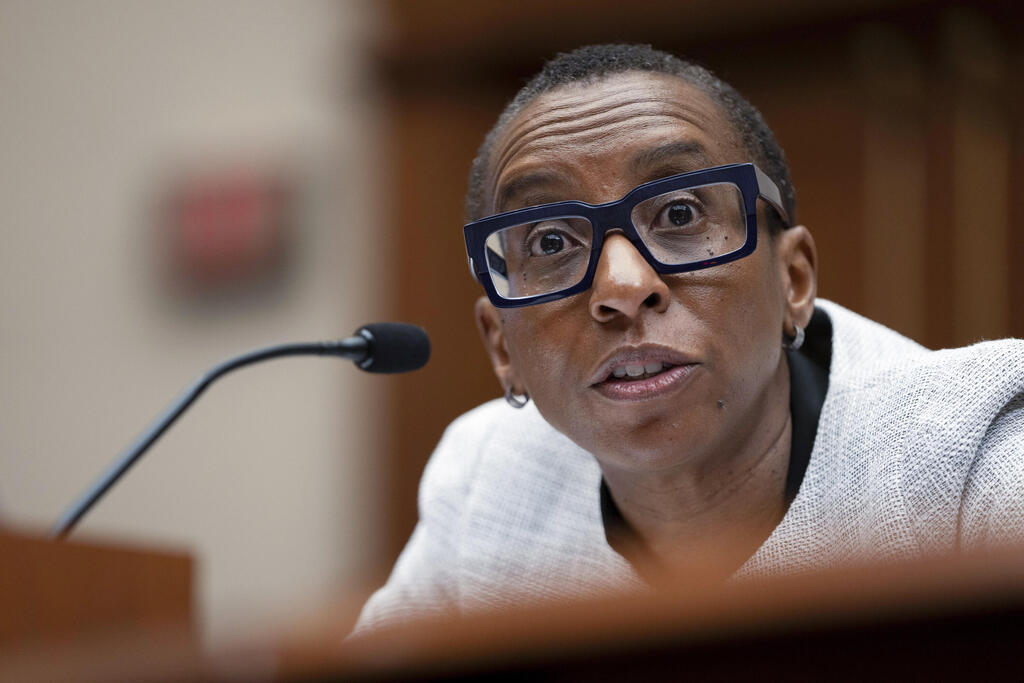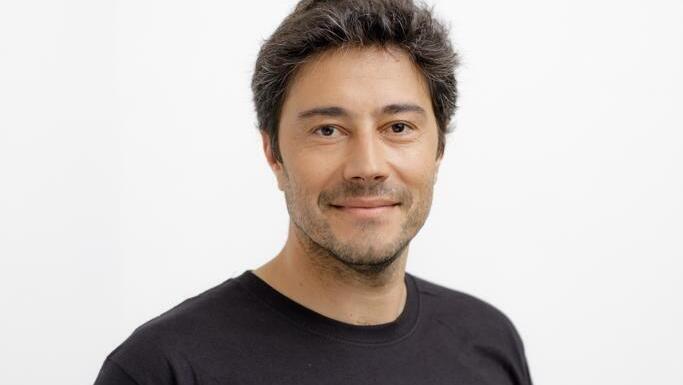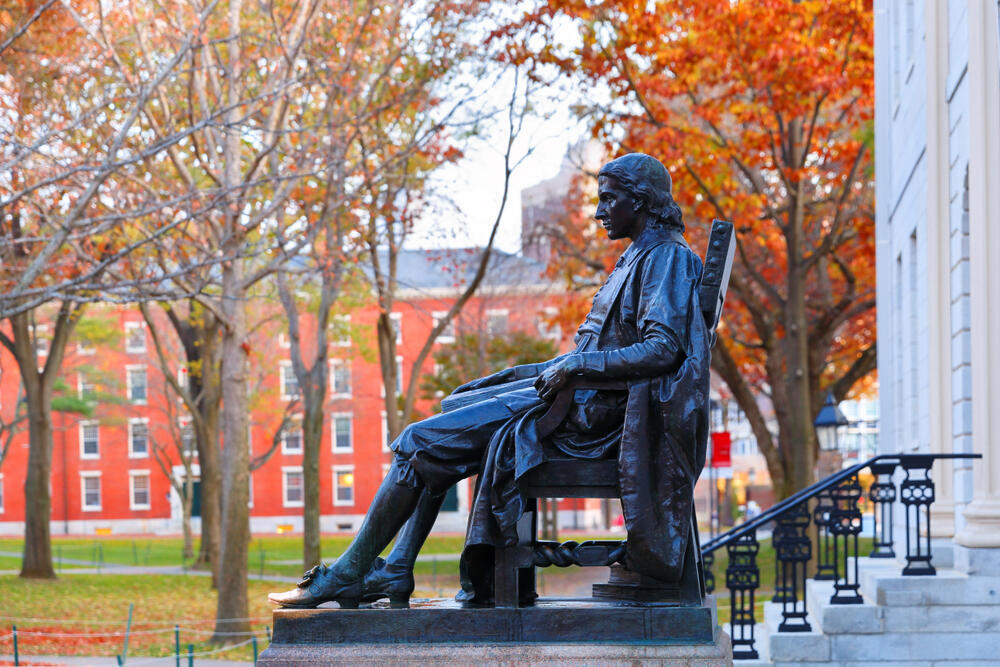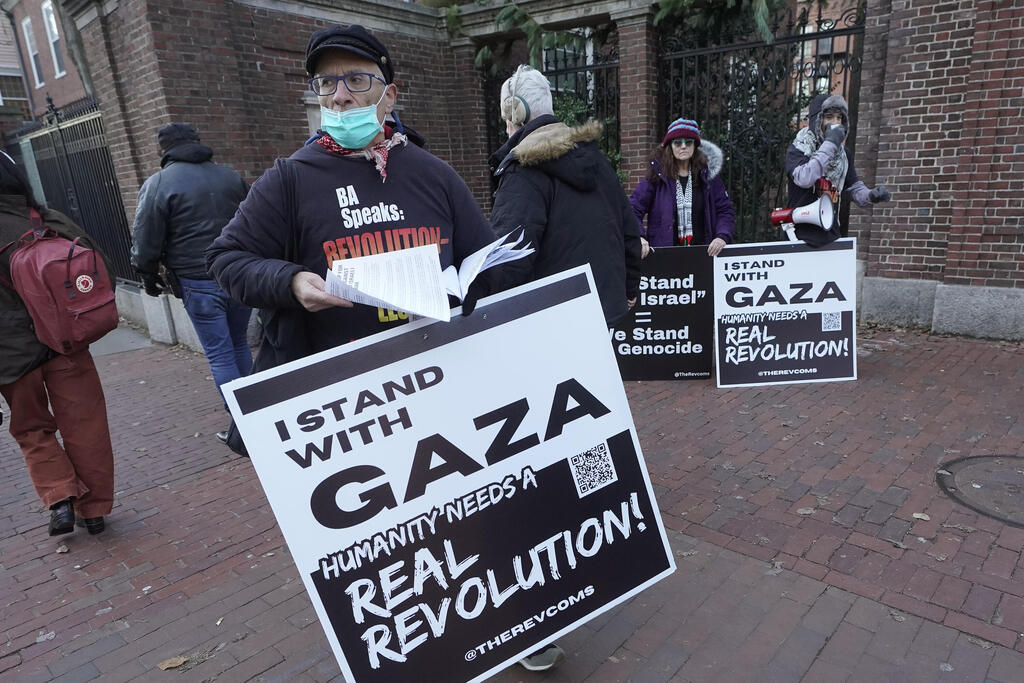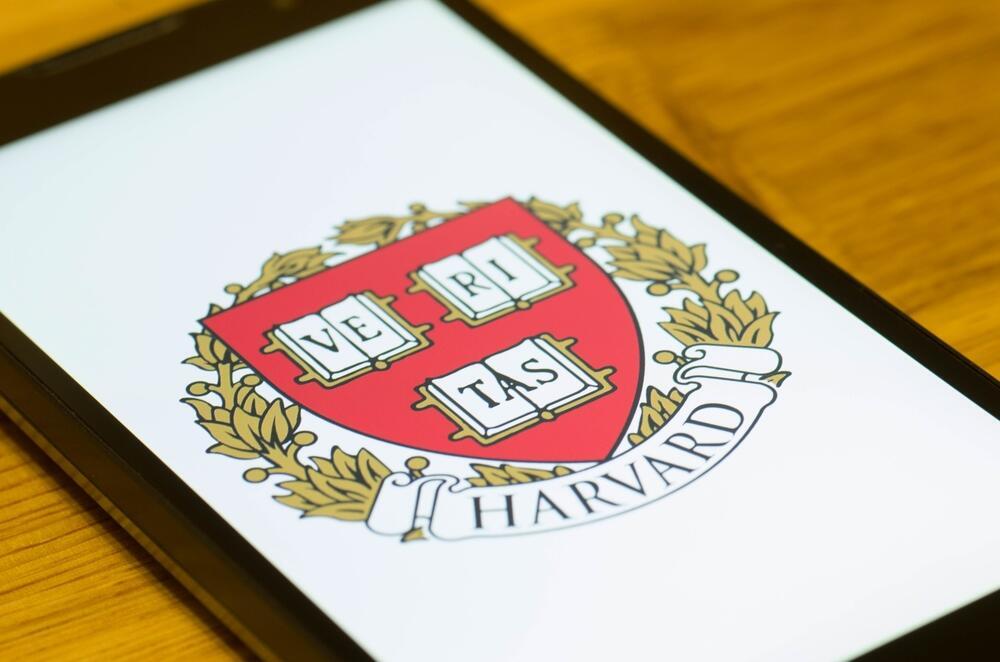Hanging in Ilan Greenstein’s wardrobe are some Harvard sweatshirts – memories of the time he spent on a graduate program at the Ivy League university’s law school. It’s been over a decade since his time at Harvard and the shirts are now faded. But that’s never bothered 42-year-old Ilan. For years, he’s been wearing these shirts with pride. But since October 7, and the ensuing Harvard tempest, these shirts have stayed firmly inside the wardrobe. He’s just not comfortable wearing them anymore.
More stories:
“People go to Harvard because it’s the world’s top university. For me, it was a dream come true. When you’re part of a place like that, you’re overcome by an enormous sense of pride that remains with you for years. And then, all of a sudden, this pride is shaken. You hear the terrible things the university leadership are saying and, as a Jew and as an Israeli, you think to yourself: ‘I’m proud to have been there, but are they proud of me?’ It hits you hard.”
The Harvard saga kicked off just one day after Hamas’s attack on Israel with a petition signed by 34 student campus organizations. The authors and signatories claimed that the apartheid regime that Israel implements on the Palestinians is solely to blame and therefore Israel, not Hamas, must be condemned.
The university’s response – signed off by university president, Claudine Gay, and most university department heads was feeble and evasive. The leadership of the world’s number one university was quick to “call for dialogue” and, naturally, condemned “extremists on both sides.
Jewish and Israeli graduates were astounded. For years, decades after graduating, they’d been working so hard for the university. They’d been proudly representing Harvard 24/7 wherever they went, helping young people enroll and donating piles of money.
They now learn that the university, so dear to them, doesn’t care about them at all. As far as Harvard’s concerned, their friends and families murdered in saferooms in their pajamas, or who just wanted to go dancing, are “one side”, while the terrorists armed with endless guns and infinite hatred who’d spent two years training for this killing spree, are the “second side.” Responses of outrage were quick to come.
9 View gallery


Hundreds of charred cars left from the October 7 attack on the Nova music festival in southern Israel
(Photo: Yuval Chen)
“The student letter evoked a great deal of indignation, but I didn’t spot the warning signs. I just thought to myself ‘Ah well… it’s just students’,“ says 57-year-old Guy Melamed, president of the Harvard Alumni Club in Israel. ”But the university’s shabby response was just too much to bear. I convened the Harvard Alumni Club for a Zoom meeting later that night. We agreed we had to respond.”
This Zoom call was the first thing Melamed did following his release from the hospital. His own, personal, drama began a week before the war with an unexpected life-threatening incident during an overseas family vacation with his wife and three children. His eldest son, a combat medic, and his second son, a deputy company commander and combat medic, set off together on a mission to “Save Dad.” This involved five ambulances, three hospitals and being airlifted to Jerusalem’s Sha’arei Zedek Hospital. This is where October 7 first hit him.
”I heard a siren. I looked at my phone and realized that what was going on was unprecedented. I immediately called my two sons and said to them: ‘You’ve just saved your father. Please don’t rush off to the war’. But they did rush off to the war. They’re both now in reserve duty.”
"I was lying there in hospital. I was inundated with angry reactions from alumni both from Israel and overseas. There are 1,400 alumni in Israel – each a whole world. Some handed back their certificates. Others swore never to donate to Harvard again. The club I head serves as the bridge connecting Harvard and Israel. In some ways, we represent Harvard here and Israel at Harvard, but I feel that our first and foremost responsibility is to the State of Israel.
"Following two days of consultations and deliberations, we drafted a very sharply worded letter saying that we, the Israeli alumni, are disappointed, angry, dumbfounded, and ashamed of Harvard’s response. Then came two further responses from the president constituting an apology of sorts for the initial response. There’s a Persian saying that a bad apology is worse than the sin itself that, sadly, is just so applicable here. The apologies were weak, only proving that her initial response expressed her true feelings.”
Alongside outrageous statements, antisemitism proudly reared its head on campus as Jewish students started finding themselves on the defensive. This was all condemned by Jews across the world, some of whom didn’t suffice with angry words, and moved into action.
Billionaire hedge fund manager, Bill Ackman, himself a Harvard graduate, has mounted pressure on Gay to resign. The Jewish-American Wexler Foundation also declared the cessation of its contributions. The foundation supports young people from government bodies in Israel studying at Harvard’s Kennedy School of Public Administration. The Wexner Foundation also ranks among the Kennedy School’s most prominent donors, even funding a building in its name. The Wexler-Harvard partnership came to an end after 35 years and hundreds of millions of dollars in donations.
Batia and Idan Ofer, who have served on the Kennedy School’s executive board for five years, were also stunned by the poor response. Both canceled their board membership, declaring the withdrawal of a donation that was about to be signed. Instead of donating to Harvard, they made an 8-million-shekel contribution to the “Achim Laneshek” (Brothers in Arms) organization, currently providing on-the-ground support to both soldiers and the Home Front.
In early November, the president asked to talk to Melamed on the phone. He insisted on a Zoom meeting. She showed up with two further senior university administration members. Melamed showed up with two Harvard graduates from the club, backed up with auxiliary forces: His eldest son who, as part of his duties as a paramedic, was among the first to enter homes in Israeli border communities and saw the horrors with his own eyes.
”I especially brought him so that he could tell her what he saw, so that it wouldn’t be something she’d read in the newspapers, but rather a first-hand account. He saw indisputable evidence of horrific sexual violence. He saw the condition of the bodies. I wanted him to tell her what Hamas left there.”
How did the conversation go?
“It was hard and terse. Claudine Gay has never been to Israel. I don’t think she’s antisemitic, but rather she genuinely doesn’t understand. I explained, as simply as possible, that Hamas won’t lay down their arms, that Gaza could have been Singapore, and that if we just let it be, we’ll all end up like the communities near the Gaza border. I explained what ‘From the River to the Sea’ means in practice. One Palestinian state from the river to the sea means killing over 7 million Jews between the river and the sea. We corresponded a few times after that. I’ve also invited her to come to visit Israel.”
Avoiding burning bridges
You’d expect the November 14 conversation might shake up the president a bit. It didn’t. On December 6, less than a month after that conversation, she gave her infamous testimony to Congress. Gay was summoned (alongside UPenn president, Liz McGill and MIT president, Sally Kornbluth) to a hearing about academic institutions’ responses to antisemitic and hate crimes on American campuses since the war in Gaza began. The hearing dragged on for five hours. At this time, the presidents were firm about clearly condemning antisemitism.
The climax came when they were asked whether calling for genocide of the Jewish people constitutes harassment or violates the codes of conduct in their respective academic institutions. Their scandalous response was that it “depends on the context.”
This testimony was the final straw and led to multiple calls for resignation. Liz McGill resigned. Claudine Gay made do with an apology that earned her the backing of 700 faculty members who signed a petition supporting her remaining in her position. Last week, the Harvard Board of Directors decided to support the serving president. Claudine Gay is here to stay.
But she’s not the only one who’s here to stay. The Harvard Alumni Club in Israel aren’t going anywhere either. They’ve swallowed their pride and not severed their ties.
“We decided very early on that we’re here for the long run. We have no intention of leaving the arena,” Melamed tells us. ”We’ve found ourselves at a historic point in time and we have the responsibility to manage this crisis in the most correct way. We mustn’t abandon the campus of the best university in the world that trains present and future leaders, where global political, military, economic and social agenda take shape.
"Many have already left: The Wexler Foundation that’s done great work for years. Batia and Idan Ofer too. They have their reasons, and I do understand and sympathize to a point, but it definitely damages Israeli and Jewish presence on campus. The space left by Israelis will be taken by other people - neither Jews nor Zionists.“
“Historically, places where Jews attained rights, freedom to function and decision-making positions, have had flourishing Jewish communities and eras of prosperity. In places where they killed, massacred and expelled Jews – like the Arab states – those countries were damaged. There are lots of Jewish professors and students at Harvard. It’s in Harvard’s interests to treat them in an inclusive, protective and egalitarian manner.
"This situation, where Jews are afraid to display their Jewishness on campus is bad not just for those Jewish students, but for the university itself. We and the university have a common interest so, despite our anger and frustration, it’s important to stay and fight from within. We’re not cutting ourselves off. Quite the opposite. I believe the proper Zionist response is to encourage more Israelis to go to Harvard, create more grants, give more help, set up a chair for Antisemitism Studies. We need to do all we can to strengthen Jewish and Israeli voices there.”
“Other Ivy League clubs have taken different routes, opting to ‘divorce’ their universities,” Greenstein adds. ”We‘ve chosen pressure and dialogue. Any vacuum will be filled - and there’s no shortage of elements across the globe who’d be only too happy to fill this vacuum.”
So, you’ve decided to overcome this personal affront and continue working on the relationship?
“Yes. It’s not easy. It’s hard to see the wider context right now because, on a personal level, it’s so insulting and hurtful. It’s difficult to come to terms with the fact that the place you’re so proud of, and you’ve worked so hard for, is suddenly exposed like this.
"But it’s important to see the big picture. This place has enormous value, not just for us as individuals, but for Israel in general. The best people in the world study at Harvard. Lots of them then become leaders and serve in key positions in a variety of areas. When Israelis go to Harvard, they make important connections.
"I studied alongside 180 people from all over the world who are now in very important positions in their own countries. I can simply call them or send them a WhatsApp. Israelis shouldn’t give this up. Every spot at Harvard that an Israeli doesn’t take, will be taken by someone from Qatar. The same goes for donations. The money will get there one way or another. It’ll just come from the very places we don’t want it to come from. We need to be both right and prudent. We must shout loudly about the injustice we feel as alumni and Israelis, and we must stay there to try to fix it from within. We all want to carry on enjoying all this amazing place has to offer.”
A mirror for American society
With donations exceeding $51 billion and a fundraising operation annually bringing in $1 billion since 2014, Harvard is the richest university in America. It’s also the oldest university in America, celebrating 387 years since its foundation this September. It started out in 1636 as “New College ” - an institution for training Protestant clerics. Three years later, the name was changed to “Harvard College” in honor of John Harvard, a clergyman who left the college a generous endowment. 140 years later, in 1780, it officially became a university. Today, Harvard is the leading Ivy League university and, since 2003, has been ranked the top university in the world. At Harvard, there are 6,500 undergraduate students and 13,000 students on various advanced degree programs. Admissions procedures are long and arduous.
The makeup of the student body has changed dramatically over the years, mirroring changes in American society. Reflecting societal changes in attitudes toward women, it has very gradually become more egalitarian:
For its first 243 years, women were not admitted to Harvard (or any American academic institution). Radcliffe College was founded in 1879 as a sister college, exclusively for women. During the First World War, female Radcliffe students were admitted to courses at neighboring Harvard University, but couldn’t study there continuously or in an official capacity. By 1963, Radcliffe degrees were signed by the president of Harvard University. 24 years later, Radcliffe’s students were officially “transferred” to Harvard. Full equality only came in 1999 when the two institutions officially merged. In July 2007, the world’s most prestigious university appointed its first female president. Claudine Gay, the current president is the university’s first black president.
Attitudes toward Jews have also undergone major changes. Although throughout the 19th century, Harvard was a bastion of the white, Protestant elites, it was also the first to admit Jews.
At the turn of the 20th century, the number of Jews in Ivy League schools increased. The Jewish contingent of the student body at Harvard tripled from 7% in 1900 to 21% in 1922. Jews won a disproportionate number of academic awards, earning them admiration and respect coupled with anger and suspicion. Jews were regarded as competitive and keen to exceed academically, but uninterested in extracurricular activities such as organized sports. People said they lacked social skills and couldn’t “fit in.”
During and flowing the First World War, antisemitism reared its head via numerous social groups including the Ku Klux Klan and various others advocating immigration restrictions. These changes were evident in academia and eventually, presidents of several elite universities tried to limit the number of Jewish students at their institutions.
Then Harvard president, A. Lawrence Lowell was one such president. Lowell claimed that capping Jewish student admissions to Harvard at 15% of the student body, would be good for the Jews as these limitations would prevent further antisemitism, arguing that “the antisemitic feeling among the students is increasing, and it grows in proportion to the increase in the number of Jews. If their number should become 40% of the student body, the race feeling would become more intense.”
Harvard appointed a 13-member committee that included three Jews to study the university’s “Jewish problem.” This committee rejected the idea of a Jewish quota, but agreed that “geographic diversity” in the student body was desirable. Harvard had been using a competitive exam to determine admission, and Jewish students were scoring highly on this exam. The committee recommended replacing the competitive exam with an admissions policy that accepted top-ranking students from all over the country, regardless of exam scores.
By 1931, Harvard’s Jewish ranks were cut back to 15% of the student body. After the Second World War, the student body increased in diversity and the university drew an ever-increasing number of international students. And what about today?
The oppressed and the oppressor
“Today, there are fewer Jews on campus than in previous years,” says Tali Zinger who completed three degrees at Harvard. "In my undergraduate years in the ‘90s, about a quarter of Harvard students were Jews. Today, it’s around 5% or less. It’s been a slow change spanning the past 20 years.
"Not just at Harvard, but at all of America’s top universities. There are lots of theories explaining this drastic drop. I believe it’s the result of Diversity, Equity and Inclusion (DEI), the new concept in education that has rewritten what a classroom should look like. Who does or doesn’t pass the exam is less important. In the world of DEI, the Jews are not a persecuted minority to be nourished and protected.
"The antisemitism and anti-Israelism we’re now witnessing is the result of processes that’s been going on for some years. It’s also a symptom of something else, much broader. It’s part of the binary perception taken root in academia in which truth is no longer so important. This problematic and dangerous approach doesn’t require thinking in depth. In such a discourse, a university cannot be at the highest level in the world. It’s not about October 7 and it’s not really about the war in Gaza.”
Melamed, who studied at Harvard in the ‘90s, tells us he encountered no antisemitism on campus, but believes that what we’re seeing now started some time ago. ”It’s an ongoing process of dividing the world into oppressors and oppressed. Oppressors are usually rich white people with political power and influence and the oppressed are not white, not rich and have no political influence. This simplistic division puts the Jews and Israel on the side of the oppressor. Even when the other side is beheading, butchering and raping, we’re still the oppressors.”
“Alongside this division, there’s a world trend of a reluctance to get down to details. No one has the patience to read anything exceeding 40 words. People don’t get into facts. Even LGBT organizations, absurdly, support Hamas. These are people who, because they are who they are, wouldn’t last a single hour in Gaza. But they hang out at demonstrations, calling to ‘Free Palestine’. It’s so far removed from the facts. The global radical liberal movement is not founded on getting down into details and it’s devoid of truth. The word ‘veritas’ is part of Harvard’s motto. Although ‘veritas’ means truth, right now at Harvard the truth is well concealed. Harvard is by no means the worst – but it’s the best known, and when you’re the top, all eyes are on you.”
“The exploiter-exploited, colonialist-indigenous theories have taken center stage in academic discourse, ending up being very simplistic” agrees Greenstein. “On the one hand, Harvard has super-smart people and it’s a place of enormous knowledge and great wisdom. On the other hand, we’re all in this wave of over-simplification where people consume information in very shallow ways: Quick, short TikTok videos, vehement platforms proclaimed in four sentences… it’s all fast and instant, without delving into any depth.“
I would expect something different from students at the best university in the world
“True, they are indeed the best in the world. But they also feed from platforms offering shallow, brief messages labeling us colonialists, enslaving and ruling over the poor, indigenous Palestinians. For justice, we must now decolonize. They show up at university with these binary ideas already formulated in high school. At university, they apply these ideas to all the great thinkers whose ideas they study. These ideas are intellectually fascinating, but when you apply them to a reality whose complexity you neither know nor understand, you end up with ‘The Jews are the enemy and we must cleanse Israel of them’. So, you’re the slaughterer even when you’re being slaughtered.”
What lies ahead?
What will become of the best university in the world? There’s a 17% drop in applications for 2024. Will Harvard continue as a symbol of excellence, researching and providing leaders to move the world forward, or is this the beginning of the end?
“People from inside the university tell me that this ranks among the worst crises in Harvard’s history,” Melamed says. “It’s dividing both students and faculty and it’s terrible for public relations. The Ivy League brand has been seriously tainted in the short term.”
And in the long term?
“These universities have been excellent for centuries, and they’ll continue being excellent because of their people, traditions, resources and abilities. I don’t believe that Harvard will incur any long-term damage. It’s a bit like a dip in share -prices when a company has some kind of scandal. There’ll be a drop, and then it’ll climb back up. So yes, Harvard has been dealt a severe blow but if you’re betting, I wouldn’t bet against Harvard.
"It is, however, time to fix this. I’m very pleased with the counter-offensive I’m seeing. And it’s not just Jews and Israelis crying out: Lots of other people realize that this behavior is detrimental to something so important to America’s economy and society at large, namely its universities. They’re currently respected as the best in the world. If they go in the wrong direction, America will be the first to suffer.”
“From Israel’s perspective, it’s a lethal blow to the Harvard brand,” says Greenstein. The damage in the United States is in the donations. Anyone wanting to improve their image, used to rush to donate to Harvard, so as to be associated with the name. Now lots of people, especially Jews and Israelis, don’t think associating themselves with the Harvard brand is such a good idea. It’s a big problem because, at the end of the day, money is much of what lets Harvard be Harvard. When I was there, I was impressed not only by the extremely high level of discussion, but by the infrastructure available for study. There’s a lot of money there. I think that with hard work, this can be fixed.”
“As for American Jews, I’m sure we’ll see some change. As a parent, you’ll want what’s best in term of your child’s college experience and safety,” Zinger adds. ”You don’t want your child to have to live under the radar on campus or be afraid to go to the library or wear a kippah. For Israelis, it’s different because there’s a lot of added value to having attended a prestigious American university. Maybe Israelis will opt for different universities who’ve been dealing slightly better with the current crisis.
"The question is whether this can be fixed. I’m not convinced, but it’s worth trying so that it doesn’t get any worse. It’s a long process, and all prestigious American universities must take part. We’re already seeing some progress: Sanctions have been taken against students violating campus behavior rules and university leaders have taken training on addressing antisemitism. There have been various versions of letters from the president, each closer to what we’d like to see. She eventually did admit that ‘From the River to the Sea’ is an antisemitic slogan. It took her a month, but we may denote a learning process. It won’t change quickly, and might not change at all. We may look back in 20 years’ time and realize we were watching Harvard’s decline, not just for Jews and Israelis, but as a first-class academic institution. I very much hope not.”
- Update: this story previously stated that Mr. Ackman withdrew donations to Harvard University. Mr. Ackman has not stopped or threatened to pull funding nor made any public comment about his intentions around donation. The article was updated to reflect the same.



